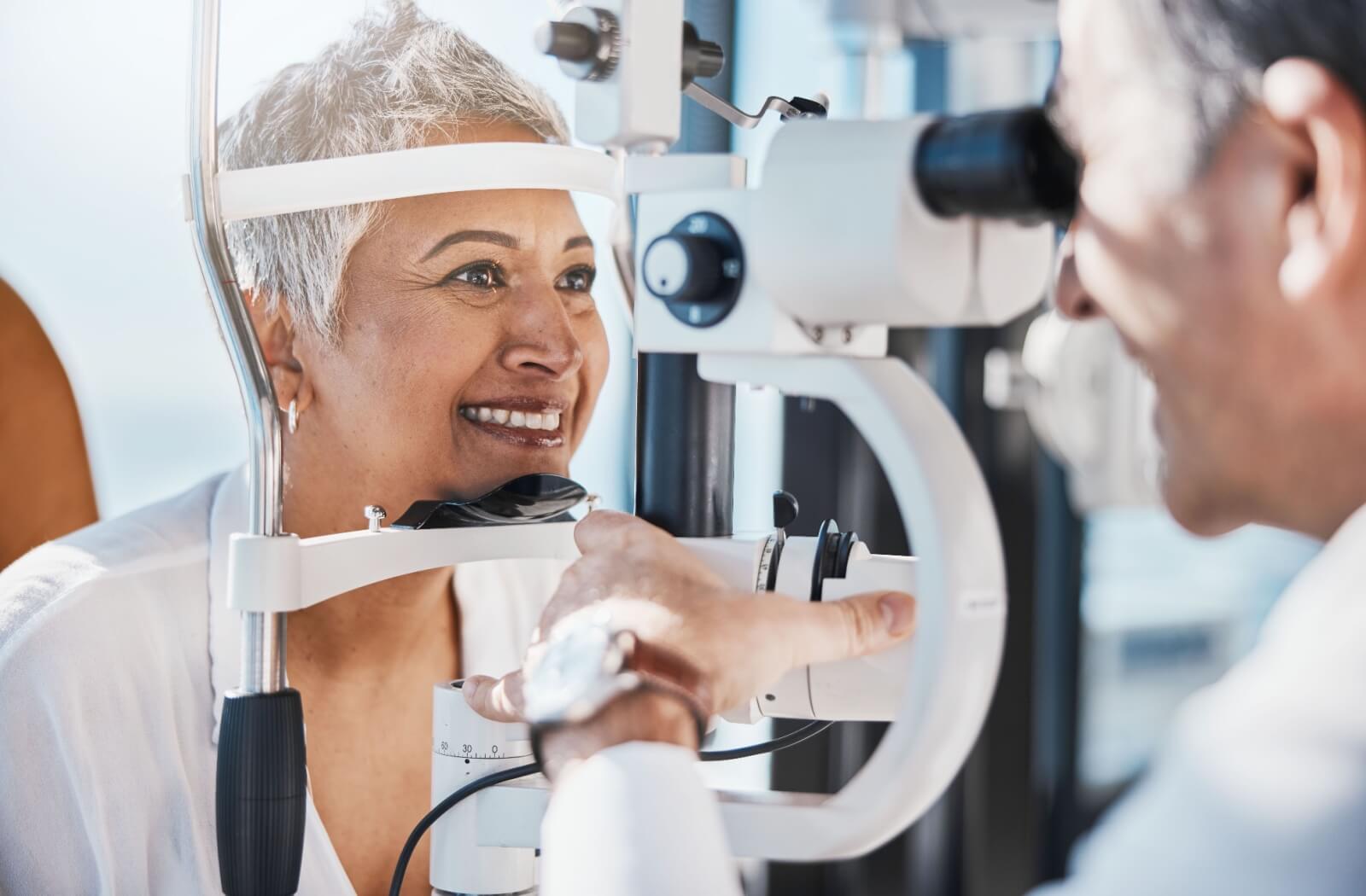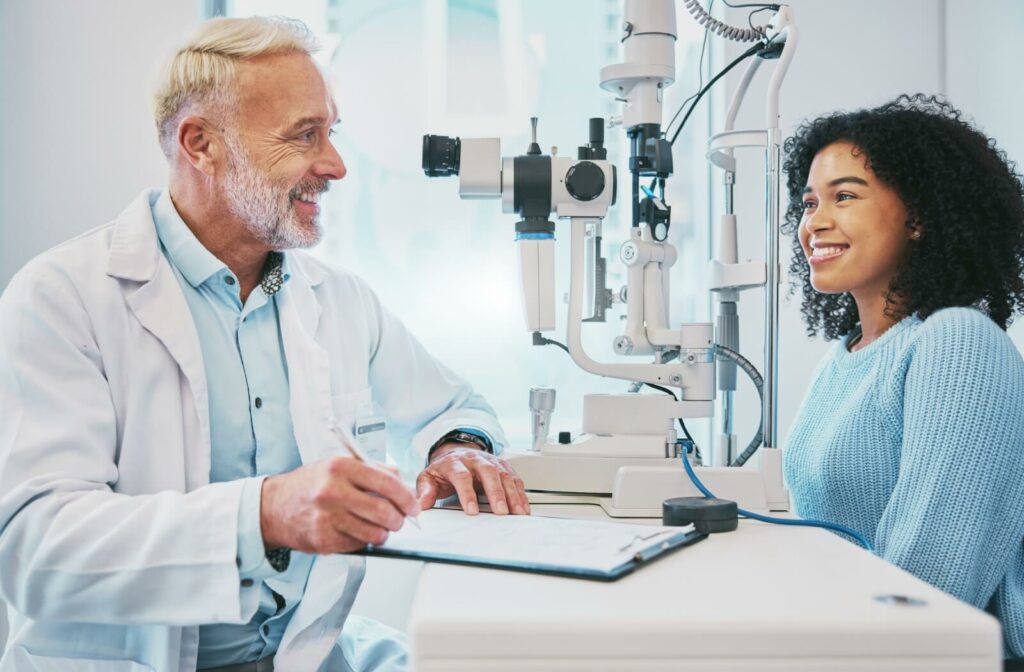Regular comprehensive eye exams aren’t just about updating a prescription—though they’re important for that too! They’re about taking the time to let a professional examine your eyes in full and look out for all kinds of potential conditions long before they become a problem. However, you might be wondering: how long does an eye exam take?
Typically, an eye exam takes between 30 minutes to an hour. This depends on the type of eye exam you are receiving and any additional tests that may be needed. Try to plan for at least an hour—this gives your optometrist the time to be thorough and leaves you room to ask any questions.
Why Are Regular Eye Exams So Important?
When planning for your next eye exam, you likely remember the charts on the wall and that machine that flips through different lenses. These are important steps of the overall process, but they aren’t the only purpose of the exam.
During a regular comprehensive eye exam, your optometrist will go through a wide series of tests. They’ll use different equipment to thoroughly examine your eyes, their structure, clarity, and overall health. This lets them keep an eye out for all kinds of potential problems—problems that otherwise might be impossible to detect.
Catching these issues early on isn’t just about treatment, it’s about preserving your vision in the long run to maintain your quality of life. These eye exams are essential for:
- Detecting vision changes that may require corrective lenses
- Identifying eye diseases or significant changes in the structure of the eye
- Monitoring the effects of chronic conditions that can affect the eye
- Ensuring overall eye health and preventing potential vision loss
By regularly visiting your optometrist, you’re giving a trained professional the chance to examine your eyes in detail and address any problems.
What Conditions Can Be Detected During an Eye Exam?
During an eye exam, your optometrist is going to be looking for problems such as:
- Refractive errors, like nearsightedness and farsightedness
- Glaucoma, a group of eye conditions that damage the optic nerve
- Cataracts, the clouding of the eye’s natural lens
- Age-related macular degeneration, the degradation of part of the retina
- Diabetes, and eye-related issues
Your optometrist can even look for signs of brain tumors, high blood pressure, thyroid issues—the list goes on. This is another reason why regular eye exams are so important—it’s about much, much more than your vision.
You should be visiting your optometrist at least once a year—and more often if you’ve been diagnosed with an existing eye condition.
What to Expect from an Eye Exam

Knowing what to expect during an eye exam can make planning and scheduling significantly easier—especially if it’s been a while since your last exam. There are 3 key stages to the exam: before, during, and after.
Before the Exam
Before your exam begins, you’ll likely be asked to fill out a medical history form and give any information about existing vision problems or recent changes. This helps the optometrist understand your background and tailor the exam to your specific needs.
Try to bring along any existing glasses or contacts that you’re currently using. You should also bring a list of any medication you take regularly. Some medicines can have unwanted side effects, and this is all valuable information for your optometrist. Then, you’ll move into the exam room.
During the Exam
Once you’re in the exam room, you’ll spend a few minutes talking to the optometrist. They will ask questions about your vision and general health before moving to different tests, such as:
- Vision acuity test: This involves identifying the smallest letters you can read on a chart.
- Refraction assessment: To determine the best prescription for corrective lenses.
- Ocular motility test: This will check how well your eyes can move in different directions.
- Pupillary reactions test: To examine how your pupils respond to light changes.
Depending on your specific needs, and anything that the optometrist may be worried about, you may experience some additional testing. Don’t worry—it’s all designed to help the optometrist fully understand your eyes!
After the Exam
Once the exam is complete, the optometrist will spend some time talking about the results. If you’ve had any changes in your vision, they’ll give you your updated prescription. And if they’ve noticed anything unusual with your eye health, they’ll discuss the next steps.
Though this seems like a lengthy process, it’s more streamlined than it appears. You should be finished within 30-60 minutes.
Book Your Next Eye Exam
At Virginie Eyecare Clinic, we know how important preventive eye care can be. It’s about so much more than your vision—it’s about taking a step towards improving your quality of life. Book your next appointment with us, and let’s work together to keep your eyes healthy and your vision clear!



